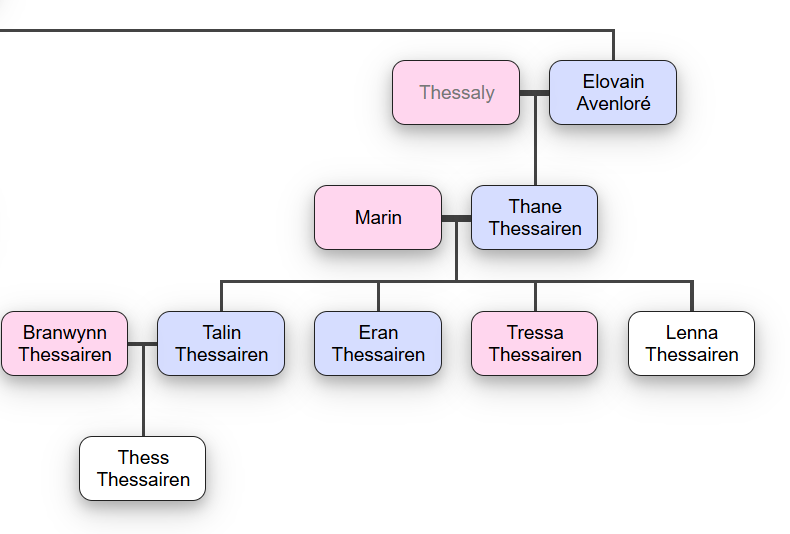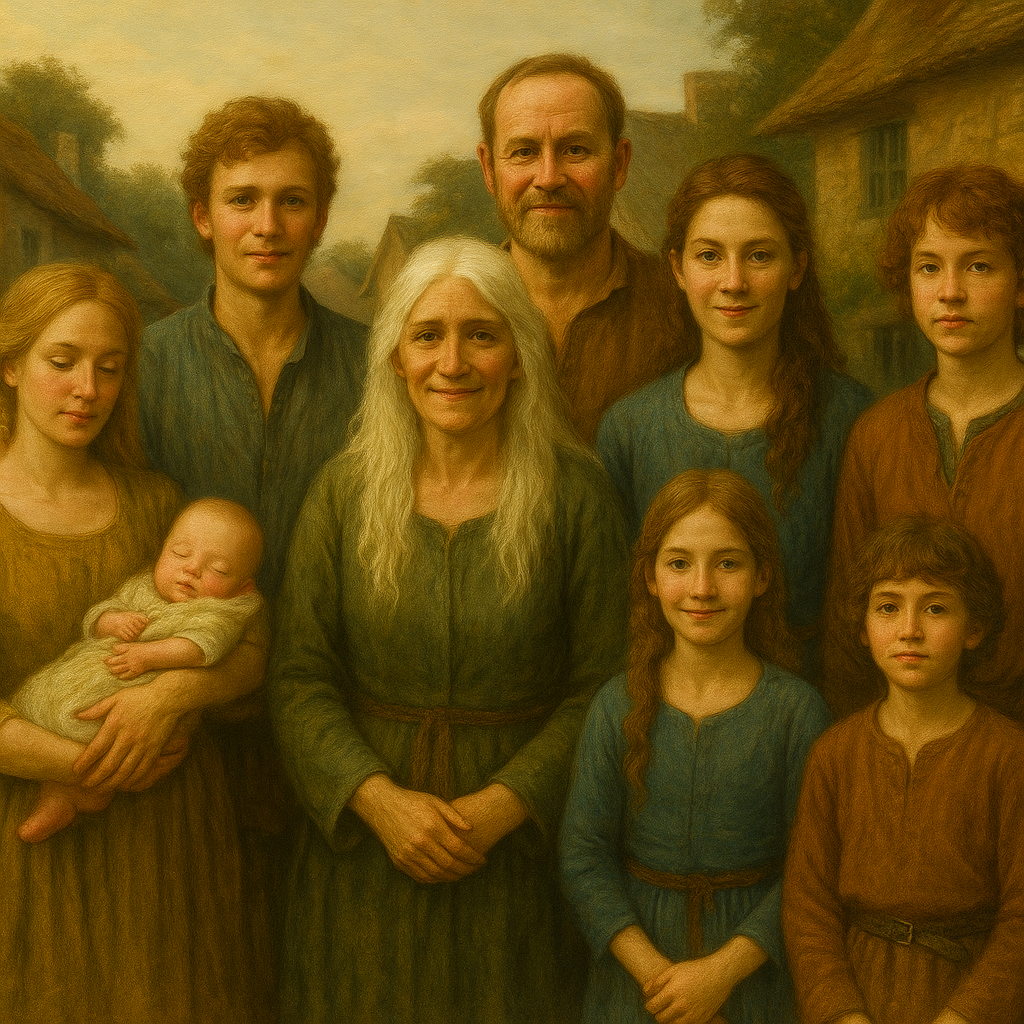Main:
Lord Elovain Avenloré, Thessaly Thessairen
Other:
Lady Selvarithe Avenloré, Thane Thessairen, Marin, Talin & Branwynn Thessairen, Eran, Tressa, Lenna, Thess
Where:
The Library, Kellack Wheal
When:
~70–90 years before the present day; spans generations
Theme:
Love and loss, family manipulation, forbidden relationships, erasure, legacy, rewriting, reclamation
Summary:
Before he became The Living Manuscript, Lord Elovain Avenloré was simply a scholar in love with Thessaly — a brilliant, quiet servant in the Lexiconum. Their relationship, tender but undeniable, threatened the Avenloré legacy. When the family intervened, they wove a lie so intricate that it tore them apart: Elovain was told Thessaly had betrayed him; Thessaly was told Elovain had disavowed her. In the wake of the deception, Thessaly fled — pregnant, grieving, and determined to survive. In the human town of Kellack Wheal, she built a new life and name: Thessairen. While Elovain buried his sorrow in ink, unaware of the family he’d lost, Thessaly’s line quietly flourished. The Avenlorés tried to erase their story. But Thessaly wrote a new one — and it endures.
Long before he was called The Living Manuscript, before ink curled along his scalp and the Lost Script made a home of his skin, Lord Elovain Avenloré was a scholar in love.
Her name was Thessaly — a lesser fae servant in the Lexiconum, soft-spoken and razor-bright. She was the only one who dared question his theories, the only one who made him laugh mid-scroll. Their love was a quiet thing, but not secret — not to the walls of the Library, not to those who watched him more closely than he knew.

When their relationship became known to the family, Elovain was summoned before the Matriarch, his mother, Lady Selvarithe Avenloré.
She did not threaten him.
She reasoned with him.
Thessaly, she said, had been caught copying something forbidden — a fragment of a text not meant for lesser fae eyes. The story was carefully woven: she had confessed, then vanished, taking her leave in shame. There was no punishment, they claimed — only choice. She had gone quietly, of her own will. Choosing her freedom over him.
What Elovain didn’t know was that the story had already been prepared before they told it. The scroll in question had never existed. The confession never given. But the shame was real — because they made it so. They showed him a forged note, written in Thessaly’s hand, saying she regretted everything. That she had never meant to let it go so far. That she hoped he would understand.
Stunned, hollowed, and desperate not to dishonour her supposed wishes, Elovain believed it. And when no letters came — when the Library sealed her name from record — he buried his grief the only way he knew: in language. In loss. In ink.
What he didn’t know — what Thessaly didn’t know — was that they had lied to her too.
She was told that Elovain had renounced her. That he had dismissed their love as folly. That he had never intended to claim her publicly.
Thessaly, pregnant and heartbroken, fled before they could decide her fate for her. She left The Library. She left Lindral Citadel. She found the human town of Kellack Wheal, where no one asked about surnames, and she invented one for herself: Thessairen. The name of a woman who had never needed permission to endure.
Her son Thane Thessairen was born and raised among humans, quiet and observant, with a gift for language he couldn’t explain. He married Marin, a woman of equal strength and steadiness, and together they raised four children: Talin, Eran, Tressa, and Lenna. Talin, the eldest, married young — a spirited girl named Branwynn — and together they now have a child of their own: Thess.
No one speaks of Elovain. No one knows to.
But he still mutters her name when the ink burns sharp.
And sometimes, when the candle gutters low, he swears a glyph on his arm begins to bloom in a shape he once traced against her back.
The Avenloré family may have rewritten the story.
But Thessaly… started a new one.

